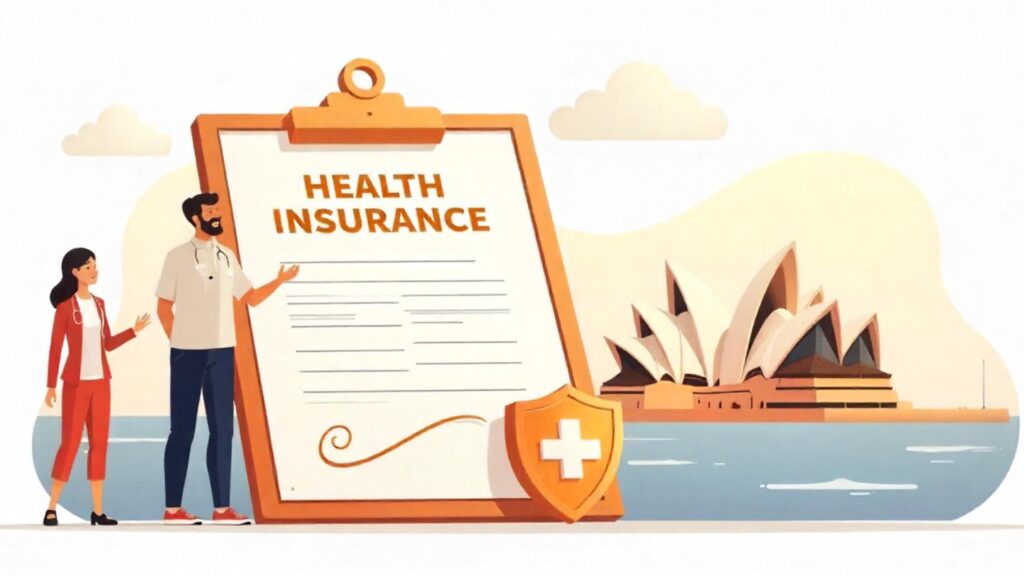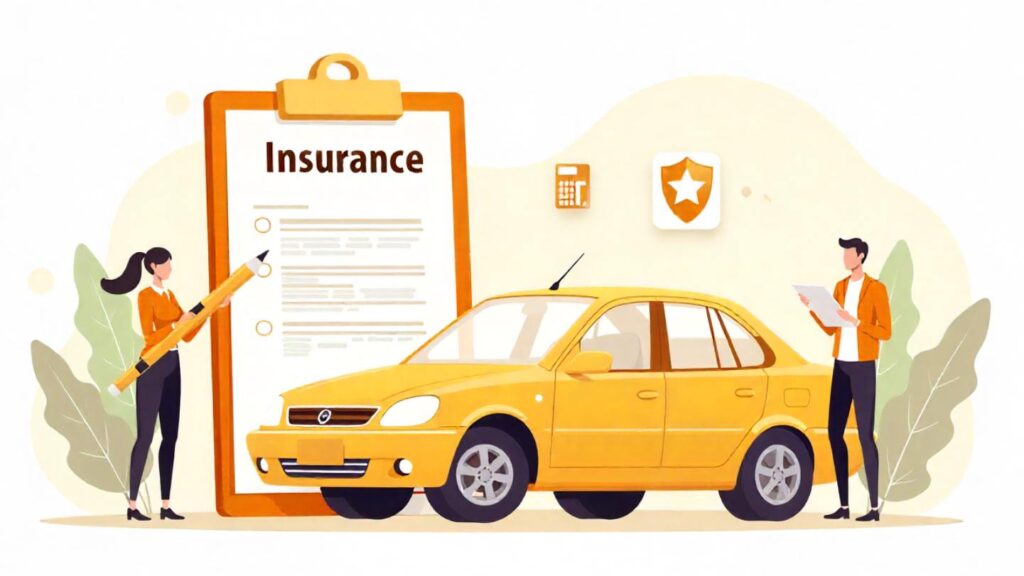- What Happens When Your Car Is Stolen Without Insurance
- Step-by-Step: What You Should Do Immediately
- Legal and Financial Consequences
- How to Handle Transportation After the Theft
- Long-Term Impact: Financial and Emotional
- What You Can Do to Recover Smartly
- How to Prevent Car Theft in the Future
- FAQs
- Final Thoughts: A Hard Lesson, But One You Can Learn From
If your car were stolen and you didn’t have auto insurance, you would face immediate financial and logistical challenges. Without insurance coverage, you’d be solely responsible for the full cost of replacing the vehicle.
This situation can quickly become overwhelming, especially if you still owe money on a car loan. Additionally, you would have no support from an insurer to cover theft or damages, leaving you to manage all expenses out of pocket.
Beyond finances, you would need to arrange alternative transportation and deal with the emotional stress of loss. Understanding these consequences highlights why auto insurance is essential for protecting your investment and peace of mind.
What Happens When Your Car Is Stolen Without Insurance
When you face a stolen car with no insurance, the outcome can be devastating. The lack of coverage means no financial help, no backup plan, and no easy way to recover.
Immediate emotional and financial shock
A car theft often comes without warning. Emotionally, it’s a mix of fear and frustration. Financially, it’s worse. You realize right away that without insurance, you’re on your own. That shock can quickly turn into overwhelming stress.
You are fully responsible for the loss
Without coverage, no one steps in to cover the damage. If you were making car payments, you must still pay the loan; even if the car is gone. A stolen car with no insurance leaves you handling everything yourself, from police reports to replacing your vehicle.
Why comprehensive insurance would have made a difference
Comprehensive auto insurance covers theft. If you had it, your provider would help recover the cost. But with a stolen car and no insurance, you lose the vehicle and any chance of financial support. It’s a hard lesson in risk protection.
No support from your insurer = total out-of-pocket costs
There’s no claim, no payout, and no assistance. You must fund a new car, arrange transportation, and manage paperwork; alone. A stolen car without insurance means every cost is yours, and recovery becomes a slow, expensive process.
Step-by-Step: What You Should Do Immediately
If your car is stolen and you have no insurance, quick action is essential. Following these steps can increase the chance of recovery and protect you from legal or financial issues.
File a police report (include required details)
The first thing you should do is report the stolen car to local police. Share important details like the car’s make, model, color, license plate, VIN, and the last known location.
Be honest and specific; accurate information increases the chances of recovery. Filing a police report also creates an official record, which you’ll need if you later find the car or face legal questions.
Notify your local DMV (if applicable in your country/state)
Depending on your location, some states or countries require you to notify the Department of Motor Vehicles after a car theft. This step protects you in case the thief commits a crime using your vehicle.
Letting the DMV know your car was stolen with no insurance ensures you’re not held liable for any incidents linked to the stolen vehicle.
Inform your lender if the car was financed
If your stolen car was under a loan or lease, contact the lender right away. You’re still responsible for payments, even if the car is missing.
Informing the lender early helps you explore options, like payment plans or freezing interest. They may also ask for the police report to begin their own internal process.
Use online tracking (if your car had GPS or smart system)
If your vehicle had a built-in GPS tracker or was connected to a smart system, try using it immediately. Many modern cars come with mobile apps or tracking software that can pinpoint the car’s location.
Share any updates with the police, but don’t try to recover the car yourself. A stolen car with no insurance is already a big risk; don’t add personal danger to the situation.
Legal and Financial Consequences
Dealing with a stolen car no insurance situation can lead to serious legal and financial challenges that many people overlook until it’s too late.
You still owe your lender (if leased or financed)
Even if your car is stolen, your financial obligations don’t disappear. If you leased or financed the vehicle, you remain responsible for monthly payments.
Missing payments can harm your credit score and lead to collections, adding to the stress of losing your car.
You won’t be reimbursed for the vehicle’s value
Without comprehensive insurance, you won’t receive any compensation for your stolen vehicle. This means you must cover the full cost to replace it out of pocket.
This unexpected expense can create a major financial setback, especially if you rely on your car daily.
Possible fines or issues if the thief commits crimes using your car
If someone uses your stolen vehicle to commit a crime, you might face legal complications. Authorities may temporarily hold you accountable until the investigation confirms the theft.
Promptly filing a police report and notifying relevant agencies helps protect you, but some legal hurdles may still arise.
Additional liability concerns if someone gets hurt
In rare cases, if the thief causes an accident or injury with your stolen car, you could face liability claims. Without insurance, these claims become your personal responsibility, potentially leading to costly lawsuits. This risk highlights the importance of having proper coverage before theft occurs.
How to Handle Transportation After the Theft
Facing a stolen car with no insurance means you need to quickly find alternative ways to get around without breaking the bank. Fortunately, there are several practical options to keep you moving.
Low-cost options: public transit, ride-sharing
Public transportation offers an affordable and reliable way to stay mobile. Buses, trains, and subways often run regularly and cover wide areas.
Additionally, ride-sharing services like Uber or Lyft provide flexible, on-demand transportation without the costs of owning a car. Using these services can ease the immediate transportation gap while you arrange longer-term solutions.
Community help: carpooling, borrowing from friends/family
Don’t hesitate to ask your community for support. Carpooling with coworkers or neighbors reduces travel expenses and environmental impact.
Borrowing a vehicle from friends or family, even temporarily, can be a lifesaver after a stolen car no insurance incident. Many people are willing to help when you explain your situation.
Financial aid programs or low-income vehicle assistance (region-dependent)
Some local governments and nonprofit organizations offer financial aid or vehicle assistance programs to people facing transportation hardships.
Depending on your region, you might qualify for grants, loans, or subsidized car-sharing memberships. Research available resources to find support tailored to your needs.
Long-Term Impact: Financial and Emotional
Experiencing a stolen car no insurance situation can create lasting effects beyond the immediate loss. Both your finances and emotional well-being may suffer long after the theft.
The cost of replacing a car from personal savings
Without insurance, you must rely entirely on your own funds to replace the stolen vehicle. This can drain personal savings or force you to take out a loan, causing financial strain that may affect your budget for months or even years.
Credit score impact if you default on the loan
If you financed your car and struggle to keep up with payments after the theft, your credit score could take a hit. Missing payments or defaulting harms your financial reputation and may increase the cost of future loans or credit.
Increased anxiety or fear of repeat theft
Once your car is stolen without insurance, it’s common to feel heightened anxiety about personal security. The fear of another theft can affect your daily routines and peace of mind, leading to constant worry over your belongings.
The emotional toll of being a victim
Beyond the financial loss, being a victim of car theft can cause frustration, helplessness, and emotional distress. It’s normal to feel vulnerable, but seeking support from friends, family, or professionals can help you cope and recover emotionally.
What You Can Do to Recover Smartly
Facing a stolen car no insurance situation means you need practical, cost-effective ways to bounce back without worsening your financial stress. Here are smart recovery steps to consider.
Budget-friendly vehicle replacement strategies
Replacing a vehicle after theft can be expensive, but you can lower costs by exploring affordable options. Look for certified pre-owned cars or reliable used vehicles instead of new ones.
Also, check local auctions or online marketplaces where prices might be lower. Planning carefully can help you avoid overspending while getting back on the road.
Applying for hardship assistance if applicable
Depending on your circumstances and location, you might qualify for financial hardship programs that offer support for essential transportation needs.
Some nonprofits, community groups, or government agencies provide grants or low-interest loans for vehicle replacement. Research and apply early to ease your financial burden after a stolen car no insurance incident.
Consider gently used cars or short-term rentals
If purchasing a replacement immediately is difficult, short-term car rentals or lease-to-own programs offer flexible alternatives. Renting gives you time to save for a better option without losing mobility.
Additionally, gently used cars often come at a fraction of the cost, helping you restore your transportation quickly and affordably.
Learn from the situation: strengthen future protections
Once you recover, take steps to prevent future losses. Install anti-theft devices, park in secure areas, and consider comprehensive insurance coverage going forward.
Using this experience to improve your vehicle’s security can save you money and stress in the long run.
How to Prevent Car Theft in the Future
Experiencing a stolen car no insurance situation highlights the importance of proactive steps to protect your vehicle and avoid costly losses down the road.
Anti-theft devices: steering locks, alarms, kill switches
Installing visible anti-theft devices can significantly deter thieves. Steering wheel locks, loud alarms, and engine kill switches make your car harder to steal and increase the chances of catching a thief. These tools act as strong first lines of defense.
Safe parking tips: well-lit, monitored areas
Always park your car in well-lit, busy locations whenever possible. Parking in areas covered by security cameras or patrols reduces theft risk by increasing visibility. Avoid isolated spots that provide easy cover for thieves.
The value of comprehensive coverage going forward
If you’ve faced the consequences of a stolen car no insurance incident, investing in comprehensive auto insurance is crucial.
This coverage typically protects against theft, vandalism, and other risks, offering financial peace of mind in case the unexpected happens again.
Keeping personal data and documents out of the vehicle
Never leave important documents or personal data inside your car. Thieves can use this information to commit identity theft or access other valuables. Removing these items reduces risks and protects your privacy.
FAQs
Can I get my car back if it was stolen without insurance?
Yes, the police will attempt to recover your stolen car regardless of insurance status, but recovery is not guaranteed.
Will the police help me even if I don’t have insurance?
Yes, filing a police report is essential, and law enforcement will investigate thefts regardless of your insurance coverage.
What happens to my loan if my car was stolen?
You remain responsible for loan payments even if your car is stolen and you don’t have insurance.
Is there any way to recover money after a car theft without insurance?
Without insurance, recovering money is difficult, but you might explore financial assistance programs or loans depending on your situation.
Final Thoughts: A Hard Lesson, But One You Can Learn From
Dealing with a stolen car no insurance situation is undoubtedly tough, but it also highlights the critical importance of being financially prepared. Without insurance, the full cost of loss falls on you, underscoring why proactive planning matters.
Moreover, this experience offers a valuable chance to take preventive steps now. Whether it’s investing in comprehensive coverage or enhancing your vehicle’s security, acting early can save you from future hardship.
Ultimately, while the theft may feel like a setback, the silver lining is clear: learning from this challenge can help you make smarter decisions going forward, protecting both your finances and peace of mind.



